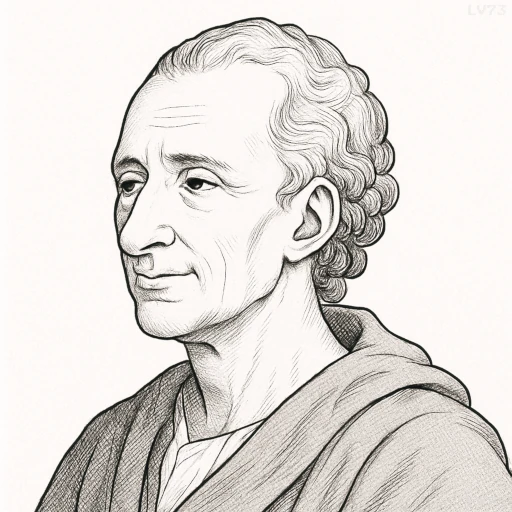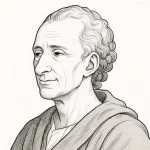“If I knew of something that could serve my nation but would ruin another, I would not propose it to my prince, for I am first a man and only then a Frenchman… because I am necessarily a man, and only accidentally am I French.”

- January 18, 1689 – February 10, 1755
- French
- Political Philosopher, Jurist, Author of The Spirit of the Laws
table of contents
Quote
“If I knew of something that could serve my nation but would ruin another, I would not propose it to my prince, for I am first a man and only then a Frenchman… because I am necessarily a man, and only accidentally am I French.”
Explanation
Montesquieu declares the primacy of universal human morality over national interest or patriotic allegiance. He insists that one’s fundamental identity is as a human being, bound by shared ethical principles, and only secondarily as a citizen of a particular country. To intentionally harm another nation for the benefit of one’s own would, in his view, violate the higher moral law that transcends borders.
This quote reflects core Enlightenment ideals of cosmopolitanism, human rights, and the moral unity of mankind. Montesquieu challenges the notion of blind nationalism or utilitarian statecraft, advocating instead for a politics of conscience and empathy. His position suggests that true statesmanship must balance patriotism with justice, and that ethical responsibility does not end at the edge of one’s territory.
In a modern globalized world facing issues like war, climate change, and economic inequality, this message is more relevant than ever. Policies that benefit one nation at the expense of others can undermine global stability and moral credibility. Montesquieu’s words remind us that we are all human before we are citizens, and that the pursuit of national good must never trample on universal justice.
Would you like to share your impressions or related stories about this quote in the comments section?



